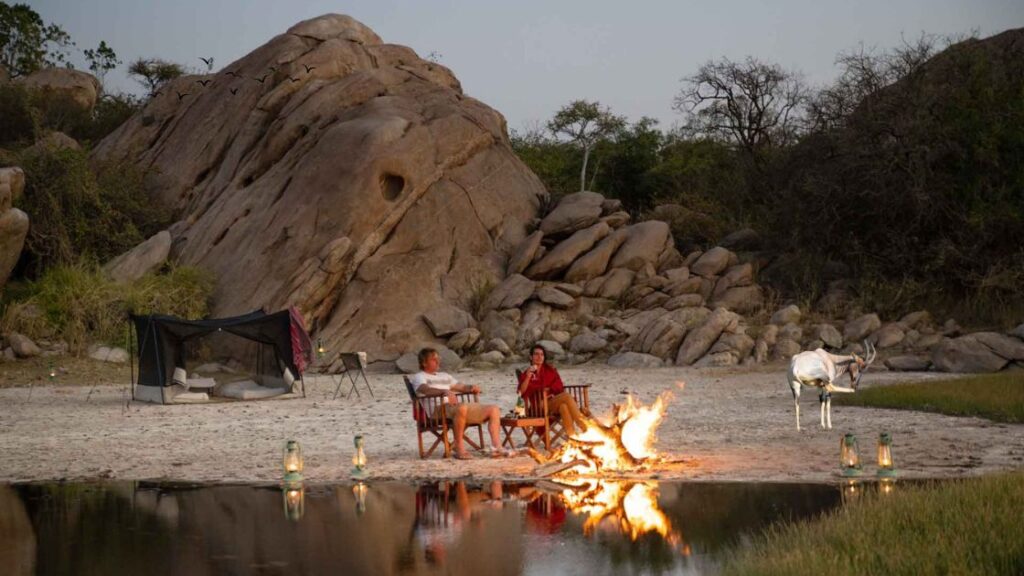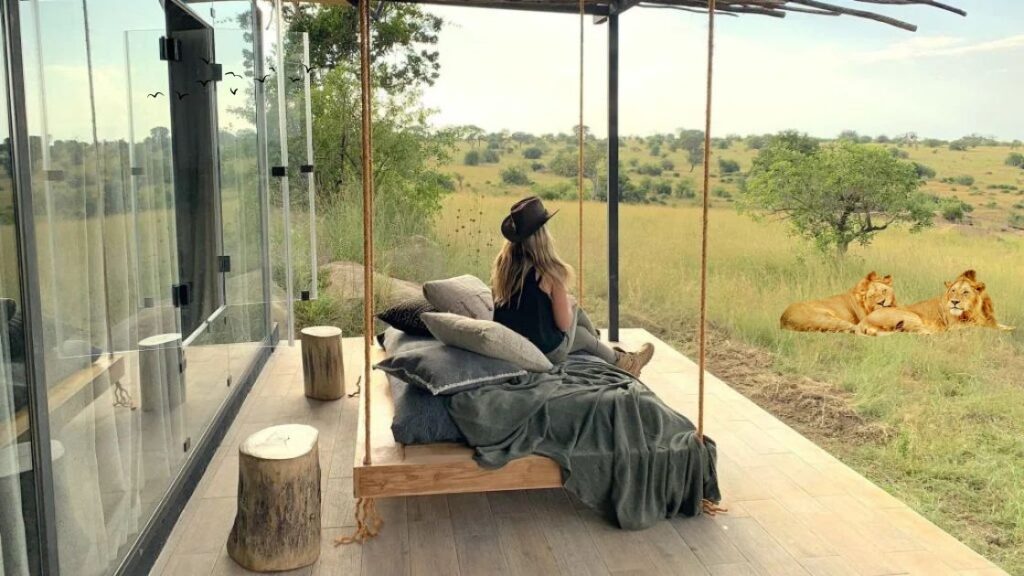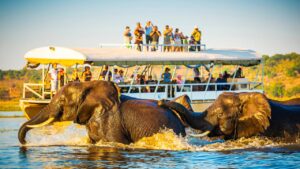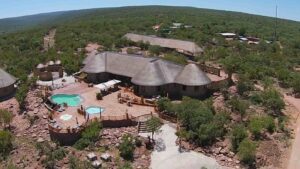If you’re a nature lover looking for your next unforgettable adventure, Tanzania should be at the top of your list in 2025. With its untamed wilderness, rare ecosystems, and deeply rooted connection to the earth, Tanzania offers more than just a safari — it offers a soul-stirring journey through nature’s raw beauty.
From the thunderous Great Migration in the Serengeti to the peaceful silence of Selous’ untouched trails, every corner reveals something magical. But what really makes Tanzania the #1 pick for nature-focused travelers? In this article, we uncover the wild reasons why Tanzania is winning hearts — and how you can experience it before the rest of the world catches on.

Tanzania’s Untouched Landscapes: Where Nature Comes Alive
Tanzania’s landscapes feel larger-than-life—rolling savannahs, volcanic highlands, dense woodlands, and vast wetlands. From the iconic golden plains of the Serengeti to the dramatic cliffs of the Rift Valley and the lush forested crater of Ngorongoro, each environment supports a unique ecosystem. Nature lovers revel in the pristine, often unspoiled wilderness—the quiet trails of Ruaha and the remote Selous Game Reserve offer raw, immersive experiences far from tourist crowds.
Wildlife Wonders: What Nature Lovers Can Expect on Safari
Tanzania is home to over 430 mammal species and 1,000 bird species, making it a biodiverse dream. Expect close-up views of elephants, giraffes, painted dogs, buffalos, and, of course, lions and leopards. In Tarangire, ancient baobabs frame wandering elephants, while Lake Manyara dazzles with flamingo flocks and tree-climbing lions. Guided walks, night drives, and hot-air balloon safaris enhance the immersive wildlife experience.
Hidden Safari Gems Beyond the Serengeti
While the Serengeti draws most of the spotlight — and rightfully so, with its breathtaking wildlife drama — true nature lovers are beginning to uncover the quieter, wilder side of Tanzania through its lesser-known parks. These hidden safari gems offer raw beauty, solitude, and deeper connections with the land.
Take Ruaha National Park, for instance. It’s one of Tanzania’s largest parks but sees far fewer visitors than the Serengeti. Here, wild dogs roam freely through open savannahs, and leopards silently stalk from the shadows of giant baobab trees. It’s a place where the silence of the wilderness is broken only by the occasional roar or distant call of a hornbill.
Further south lies the vast Selous Game Reserve, a haven of rivers, wetlands, and dense bush. Unlike typical game drives, Selous offers river safaris—where you can drift along the Rufiji River, watching hippos wallow, crocodiles sunbathe, and elephants come down to drink. It’s an entirely different rhythm of safari—gentler, more immersive, and ideal for nature lovers who crave a deeper, water-bound connection.
Then there’s the Mahale Mountains, one of the few places in Africa where you can hike into misty rainforests to meet wild chimpanzees in their natural habitat. This isn’t a drive-through experience; it’s a trek—through humid jungle trails and up steep slopes, guided by local trackers who know every movement in the trees. The reward? A rare, breathtaking encounter with our closest wild relatives, often just feet away.
And if you’re truly seeking silence and seclusion, Katavi National Park and Gombe Stream offer some of the most remote and untouched safari experiences in East Africa. Katavi is a land of wide floodplains filled with buffalo and crocodiles, where you might not see another vehicle for days. Meanwhile, Gombe, made famous by Jane Goodall’s chimpanzee research, is a small, forested jewel on the edge of Lake Tanganyika, accessible only by boat — a safari for the true wilderness soul.
These parks don’t just offer fewer crowds — they offer something more valuable: authenticity. They allow nature lovers to witness wildlife as it was meant to be—wild, unpredictable, and deeply personal. If you’re looking for a safari that feels like a true adventure, away from the busy circuits, these hidden gems may just be your perfect escape.

Eco‑Friendly Tanzania: Travel That Protects Nature
Across the nation, a growing number of safari lodges and camps are embracing eco-conscious practices that allow travelers to explore the wild without leaving a harmful footprint.
Many of these lodges now run entirely on solar power, using energy from the sun to fuel everything from lighting to hot showers. Water conservation is also a top priority, with rainwater harvesting systems in place to reduce pressure on local supplies, especially in remote regions. You’ll also notice a shift toward plastic-free environments. Instead of disposable bottles and toiletries, guests are provided with biodegradable amenities and refillable containers, making it easier to travel responsibly.
But eco-tourism in Tanzania goes beyond infrastructure. A growing number of properties are working closely with local communities, particularly the Maasai, Hadzabe, and other indigenous groups. These partnerships aren’t just symbolic—locals are employed as guides, rangers, chefs, and cultural ambassadors. Their knowledge of the land adds depth to every safari while providing real economic benefits to rural areas.
Behind the scenes, many lodges collaborate with conservation NGOs focused on protecting endangered species such as elephants, rhinos, and pangolins. Some donate a portion of profits directly to anti-poaching patrols or wildlife rescue centers, while others sponsor research and habitat restoration efforts.
What this means for you, as a traveler, is simple: you can enjoy a rich, immersive safari experience without guilt. Whether you’re dining on locally sourced, organic meals, staying in a canvas tent powered by clean energy, or learning about traditional plant medicine from a Maasai healer, every moment contributes to something bigger. Your trip becomes more than a vacation—it becomes part of a movement to keep Tanzania wild and thriving for generations to come.
Why Nature Enthusiasts Are Choosing Tanzania Over Kenya in 2025
While Kenya has long been a safari favorite, more nature-focused travelers in 2025 are turning their attention to Tanzania—and for good reason. Tanzania offers a more untouched, raw experience of Africa. The parks are less crowded, allowing visitors to truly hear the rustle of the bush and enjoy uninterrupted views of wildlife.
The country’s ecosystems are incredibly diverse—from volcanic craters and vast savannahs to rainforest mountains and coral-rich islands like Zanzibar. You’ll find fewer commercialized lodges and more off-grid camps that blend into the wild.
What really sets Tanzania apart is its authenticity. Whether you’re guided by a local Maasai tracker or visiting a remote village, the cultural exchanges feel real and personal. For those seeking quiet beauty and a deeper connection to nature, Tanzania is the clear choice in 2025.

Zanzibar’s Secret Side: Where Beach and Biodiversity Meet
Zanzibar is often seen as just a place to relax after safari—but for nature lovers, it offers so much more. Beyond the white-sand beaches lies a world of rich biodiversity waiting to be explored. In Jozani Forest, you can walk beneath the canopy while spotting the rare and playful red colobus monkeys, found only on this island.
The surrounding waters also invite discovery. Eco-friendly dolphin safaris let you witness these graceful creatures in their natural habitat, while guided snorkeling and diving trips take you into coral gardens filled with colorful marine life.
Zanzibar isn’t just a beach destination—it’s a living ecosystem that beautifully connects your land safari with the sea. For those who care about nature from forest floor to ocean reef, it’s the perfect final chapter to a Tanzanian adventure.
Planning a Nature‑Centric Tanzania Safari: Must‑Know Tips
To get the most out of your nature-focused safari, timing matters. The best months to visit are June to October for the Great Migration and classic game viewing. November and March are ideal for bird lovers, while December to February offers quieter parks and fewer crowds.
Pack light but smart—bring a reusable water bottle, solar charger, binoculars, and neutral-colored clothing to blend into the bush. These essentials keep you eco-friendly and prepared for long drives or unexpected wildlife sightings.
Responsible travel is key in Tanzania. Always keep a respectful distance from animals, avoid flash photography, and support ranger-led conservation tours, which contribute directly to protecting habitats and wildlife.
To truly connect with the landscape, consider adding guided experiences like nature walks, visits to local villages, bush dinners, or even a hot-air balloon ride over the savannah. These extras turn your safari into a once-in-a-lifetime journey that’s rich in both nature and meaning.
Real Voices: Why Nature Lovers Call Tanzania ‘Life‑Changing’
For many travelers, a safari in Tanzania isn’t just a trip—it’s a deeply moving experience that stays with them forever. One recent visitor to Ruaha National Park shared, “The silence at night—interrupted only by distant roars—felt like Earth’s own heartbeat.” It’s in those quiet, untamed moments that Tanzania truly connects with the soul.
Another nature enthusiast who trekked through Mahale Mountains recalled, “Watching chimpanzees swing through the misty treetops was surreal—pure, unfiltered nature.” It’s not something you just see. It’s something you feel.
From the stillness of the savannah to the intimacy of remote forests, these real voices echo a shared truth—Tanzania changes how you see the natural world.
Experience Tanzania Before the World Rediscovers It
Tanzania remains one of the last wilderness frontiers—a tapestry of ecosystems, cultures, and untouched travel experiences. As nature lovers wake up to the importance of regenerative travel, this is your moment to discover Tanzania before the crowds return. Plan, pack, and book responsibly to experience its beauty with purpose—and let the bush be your guide.
(FAQ)
Q1. What is the best time to visit Tanzania for nature lovers?
The best time to visit depends on what kind of natural experience you’re seeking. For big game viewing and the famous Great Migration, June to October is ideal—dry weather, active wildlife, and clear skies. If you’re a bird lover, November and March bring vibrant migratory birds and lush landscapes. For a quieter, more personal safari, December to February offers fewer tourists and a peaceful environment perfect for reflection and photography.
Q2. Is Tanzania Safari suitable for first-time eco-travelers?
Yes, absolutely. Tanzania is one of the most welcoming destinations for first-time eco-conscious travelers. Many lodges are designed with sustainability in mind—using solar energy, recycled water systems, and plastic-free amenities. Guided tours are informative, respectful of wildlife, and tailored for beginners. Whether you’re new to safaris or sustainable travel, you’ll find Tanzania easy to navigate and rich in ethical experiences.
Q3. What makes Tanzania better than Kenya for a nature safari?
While both countries offer incredible wildlife, Tanzania stands out for its raw, untamed beauty and fewer crowds. Parks like Ruaha, Selous, and Katavi offer expansive landscapes with minimal tourism infrastructure—perfect for nature lovers seeking solitude. Tanzania also features a broader range of ecosystems, from volcanic craters and savannahs to rainforests and coral islands, allowing for a more diverse and immersive safari journey.
Q4. Can I combine Tanzania Safari with a responsible Zanzibar trip?
Yes, and it’s highly recommended. After your safari, Zanzibar offers a refreshing contrast with its beaches and marine life. But it’s not just about relaxation—responsible tourism thrives here too. You can explore Jozani Forest to see endangered red colobus monkeys, take part in dolphin watching tours that respect animal behavior, and dive into coral reef conservation programs. Zanzibar complements your safari with eco-conscious coastal beauty.
Q5. Are Tanzania safaris safe and eco-friendly in 2025?
Tanzania remains a safe and eco-forward destination in 2025. Tour operators have embraced sustainable tourism standards, and guides are trained in ethical wildlife viewing, guest safety, and emergency response. Many lodges are off-grid and run with minimal environmental impact. By choosing reputable, conservation-minded operators, your safari can support both local communities and wildlife protection—making your trip meaningful and secure.


